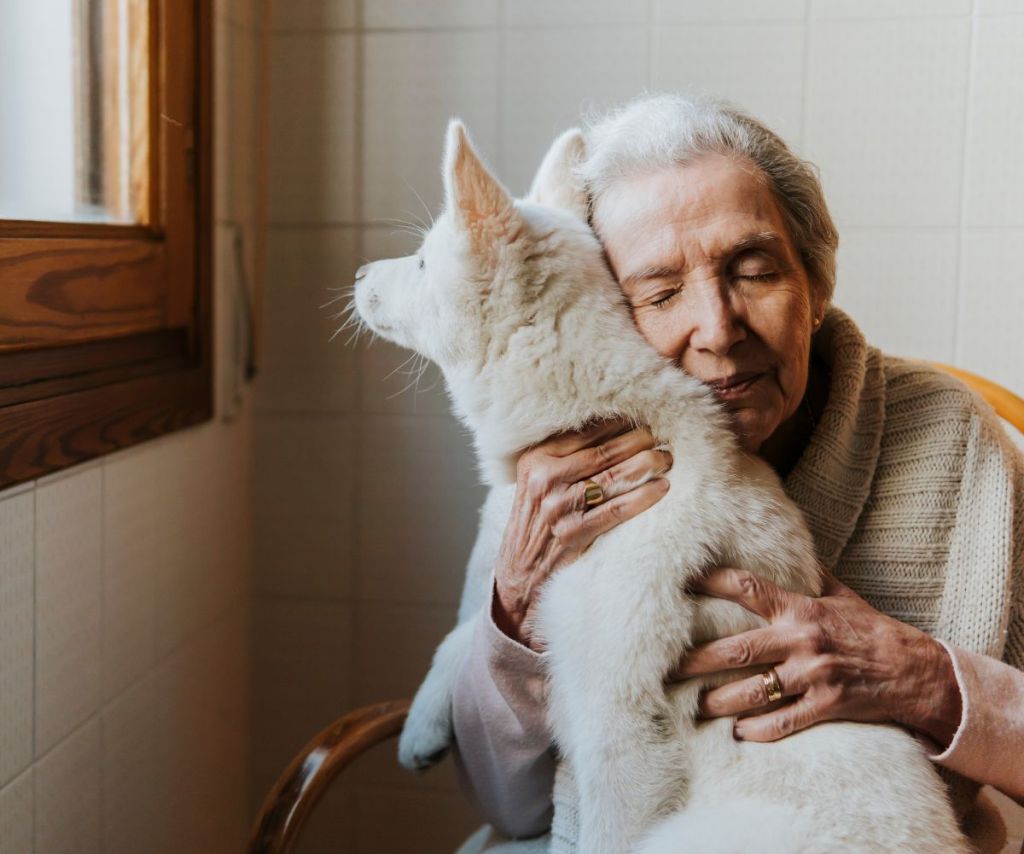There’s no better feeling after a tough day than coming home to the loving greeting of an excited dog, or having a softly purring cat curl up on your lap.
And while they’re improving your mood, your furry friends are also subtly helping you in plenty of other ways. Pet ownership also has some health benefits that you might not have realised.

Make sure you can commit to a lifetime of care for your pet.
(Credit: Getty)Your heart & brain
Take heart – pets are good for your ticker. Research has linked pet ownership with lower blood pressure and lower risk of death from heart disease.
They also help stave off loneliness, which can increase your risk of a heart attack or stroke.
“Pets provide companionship and a sense of social support, especially for individuals living alone,” confirms Dr Leigh Davidson, vet and director of animal health website Your Vet Online.
Your brain, too, is much better off if there’s a beloved animal in your life.
One study found that long-term pet ownership may help keep your brain healthy as you age, potentially helping to protect against cognitive decline.
Mental health
Pets really are amazing. It turns out those good feelings you get from hanging out with your furry friend can translate to better mental health, too, Dr Davidson says.
“Spending time with a pet can significantly reduce symptoms of depression and improve overall mood,” she explains.
A US study found that just 10 minutes of interacting with a pet – think patting or playing with them – will lower stress levels in your body and help reduce anxiety.

Some Fidos make great bedfellows!
(Credit: Getty)Illness prevention & recovery
Not only can having a pet help improve your immunity – especially in kids, helping reduce their risk of asthma and allergy – it can also help you heal.
“Pet therapy has been utilised in clinical settings to help manage pain and stress in patients undergoing medical treatments or recovering from surgery,” Dr Davidson explains.
Sleep
If you like having your moggy or doggo snuggled up in bed beside you, it might be because the emotional support helps you relax.
“The presence of a cat or dog can provide comfort and help with a feeling of security, and also provide warmth and a feeling of cosiness,” says Dr Davidson.
But there is also some evidence it could negatively impact your quality of sleep since animals may snore, hog the mattress or purposely wake you up.
The best advice? If it’s not affecting your sleep, it’s fine to share a bed with a pet – and it may even benefit you.

Kids learn essential life skills from having a pet.
(Credit: Getty)Aiding kids development
Got little ones? It might be time to give in to their pleas to add a four-legged friend to the family. They’ll be all the better for having a pet in the home.
Not only will they learn responsibility and get more physical activity (through walks and play), they’ll develop important social skills and emotional intelligence.
“Caring for a pet teaches children to consider the needs and feelings of others,” explains Dr Davidson.
“This experience can foster the development of empathy and kindness, both crucial qualities for healthy relationships.”
Having a bond with a pet can help reduce social anxiety in kids with autism. And all children have the capacity to learn better communication skills thanks to having a pet.
“Children often need to negotiate with family members about pet-related responsibilities and decisions,” says Dr Davidson.
“This experience helps them develop communication and negotiation skills as they work together to ensure the pet’s wellbeing.”

